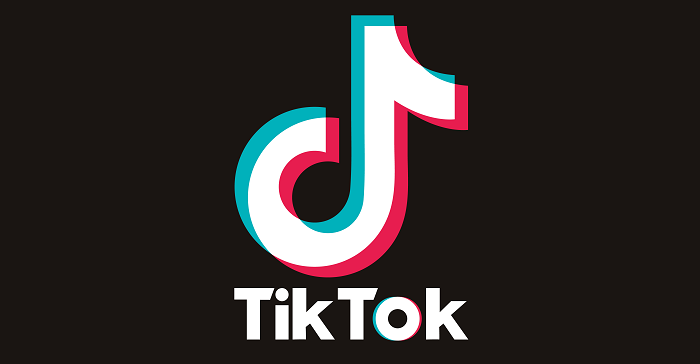SOCIAL
TikTok Suspends Planned Data Usage Policy Change Amid New EU Investigation

This doesn’t look great for TikTok, which is already under scrutiny in several regions.
Today, TikTok has confirmed that it has suspended a planned change to its privacy policy relating to the use of user insights for targeted advertising, amid questions over whether the change is actually legal under the latest EU provisions for data protection and control.
Last month, TikTok began showing users in Europe, the UK and Switzerland new, in-app notifications informing them of the upcoming change to its data collection policies.
As you can see, within these new pop-up alerts, TikTok explained that, as of July 13th (i.e. tomorrow), it would look to use ‘legitimate interests’ as a legal basis for ad personalization, as opposed to seeking explicit user consent for utilizing personal data within its ad targeting process.
The difference here is significant – under EU law, the ‘legitimate interest’ provision comes under a different category to personalized data tracking, and avoids the need to ask users for explicit consent to use their personal info. That would essentially enable TikTok to continue serving personalized ads without having to ask for user permission, which is what the EU’s ePrivacy Directive is designed to facilitate, giving people more control over how their data is used.
The ‘legitimate interest’ provision is somewhat similar to ‘fair use’ within press coverage, with media outlets able to use certain content and references if it’s arguably within the public interest. Legitimate interest is the same, in that a company can argue that it’s within the interests of both the company and users that it utilizes such insights.
Targeted advertising is not what this provision was designed to cover, but TikTok was hoping to use the loophole to ensure optimal performance of its ads.
Indeed, in a statement on its decision to pause the update, pending an EU investigation, TikTok said that:
“We believe that personalized advertising provides the best in-app experience for our community and brings us in line with industry practices, and we look forward to engaging with stakeholders and addressing their concerns.”
Of course, TikTok knows full well that this was not what the ‘legitimate interest’ provision was designed for, and it was trying to sneak it in under the radar. Which makes some sense, in a certain reading of the law as it stands – but it’s not exactly a great way for the platform to endear itself to regulators, and ensure ongoing partnership within the sector.
As noted, amid TikTok’s ongoing rise, questions continue to swirl around the safety of the app, and how it uses people’s data, both in terms of targeted ads and, potentially, with respect to requests for info from the Chinese Government.
Last month, an FCC Commissioner in the US called on both Apple and Google to ban TikTok from their app stores, due to concerns that the app could be used as a surveillance tool, of sorts, by the Chinese Government. TikTok has since sought to reassure US users that their data is safe.
Also last month, TikTok was found to be failing in its duty to protect children from hidden advertising and inappropriate content, in breach of EU rules, another concern for the app in the European region.
This latest issue will not help to improve relations between the app and EU regulators, and could well spark a new round of scrutiny on its other business practices and impacts, which could again put its future in jeopardy.
It seems unlikely TikTok would be fully banned, given its rising presence and usage around the world. But as the CCP continues to bristle with various other governments, questions will remain – while issues and violations like this do nothing to help the app establish better working relationships with relevant authorities, who could decide on its ultimate fate.
It seems unlikely, but also not impossible. TikTok is the app of the moment, and the key place to be in many respects. But its future may still be questionable in a broader sense.
SOCIAL
Snapchat Explores New Messaging Retention Feature: A Game-Changer or Risky Move?

In a recent announcement, Snapchat revealed a groundbreaking update that challenges its traditional design ethos. The platform is experimenting with an option that allows users to defy the 24-hour auto-delete rule, a feature synonymous with Snapchat’s ephemeral messaging model.
The proposed change aims to introduce a “Never delete” option in messaging retention settings, aligning Snapchat more closely with conventional messaging apps. While this move may blur Snapchat’s distinctive selling point, Snap appears convinced of its necessity.
According to Snap, the decision stems from user feedback and a commitment to innovation based on user needs. The company aims to provide greater flexibility and control over conversations, catering to the preferences of its community.
Currently undergoing trials in select markets, the new feature empowers users to adjust retention settings on a conversation-by-conversation basis. Flexibility remains paramount, with participants able to modify settings within chats and receive in-chat notifications to ensure transparency.
Snapchat underscores that the default auto-delete feature will persist, reinforcing its design philosophy centered on ephemerality. However, with the app gaining traction as a primary messaging platform, the option offers users a means to preserve longer chat histories.
The update marks a pivotal moment for Snapchat, renowned for its disappearing message premise, especially popular among younger demographics. Retaining this focus has been pivotal to Snapchat’s identity, but the shift suggests a broader strategy aimed at diversifying its user base.
This strategy may appeal particularly to older demographics, potentially extending Snapchat’s relevance as users age. By emulating features of conventional messaging platforms, Snapchat seeks to enhance its appeal and broaden its reach.
Yet, the introduction of message retention poses questions about Snapchat’s uniqueness. While addressing user demands, the risk of diluting Snapchat’s distinctiveness looms large.
As Snapchat ventures into uncharted territory, the outcome of this experiment remains uncertain. Will message retention propel Snapchat to new heights, or will it compromise the platform’s uniqueness?
Only time will tell.
SOCIAL
Catering to specific audience boosts your business, says accountant turned coach

While it is tempting to try to appeal to a broad audience, the founder of alcohol-free coaching service Just the Tonic, Sandra Parker, believes the best thing you can do for your business is focus on your niche. Here’s how she did just that.
When running a business, reaching out to as many clients as possible can be tempting. But it also risks making your marketing “too generic,” warns Sandra Parker, the founder of Just The Tonic Coaching.
“From the very start of my business, I knew exactly who I could help and who I couldn’t,” Parker told My Biggest Lessons.
Parker struggled with alcohol dependence as a young professional. Today, her business targets high-achieving individuals who face challenges similar to those she had early in her career.
“I understand their frustrations, I understand their fears, and I understand their coping mechanisms and the stories they’re telling themselves,” Parker said. “Because of that, I’m able to market very effectively, to speak in a language that they understand, and am able to reach them.”Â
“I believe that it’s really important that you know exactly who your customer or your client is, and you target them, and you resist the temptation to make your marketing too generic to try and reach everyone,” she explained.
“If you speak specifically to your target clients, you will reach them, and I believe that’s the way that you’re going to be more successful.
Watch the video for more of Sandra Parker’s biggest lessons.
SOCIAL
Instagram Tests Live-Stream Games to Enhance Engagement

Instagram’s testing out some new options to help spice up your live-streams in the app, with some live broadcasters now able to select a game that they can play with viewers in-stream.
As you can see in these example screens, posted by Ahmed Ghanem, some creators now have the option to play either “This or That”, a question and answer prompt that you can share with your viewers, or “Trivia”, to generate more engagement within your IG live-streams.
That could be a simple way to spark more conversation and interaction, which could then lead into further engagement opportunities from your live audience.
Meta’s been exploring more ways to make live-streaming a bigger consideration for IG creators, with a view to live-streams potentially catching on with more users.
That includes the gradual expansion of its “Stars” live-stream donation program, giving more creators in more regions a means to accept donations from live-stream viewers, while back in December, Instagram also added some new options to make it easier to go live using third-party tools via desktop PCs.
Live streaming has been a major shift in China, where shopping live-streams, in particular, have led to massive opportunities for streaming platforms. They haven’t caught on in the same way in Western regions, but as TikTok and YouTube look to push live-stream adoption, there is still a chance that they will become a much bigger element in future.
Which is why IG is also trying to stay in touch, and add more ways for its creators to engage via streams. Live-stream games is another element within this, which could make this a better community-building, and potentially sales-driving option.
We’ve asked Instagram for more information on this test, and we’ll update this post if/when we hear back.
-

 MARKETING7 days ago
MARKETING7 days agoRoundel Media Studio: What to Expect From Target’s New Self-Service Platform
-

 SEO6 days ago
SEO6 days agoGoogle Limits News Links In California Over Proposed ‘Link Tax’ Law
-
SEARCHENGINES6 days ago
Daily Search Forum Recap: April 12, 2024
-

 SEARCHENGINES5 days ago
SEARCHENGINES5 days agoGoogle Core Update Volatility, Helpful Content Update Gone, Dangerous Google Search Results & Google Ads Confusion
-

 SEO5 days ago
SEO5 days ago10 Paid Search & PPC Planning Best Practices
-

 SEO7 days ago
SEO7 days agoGoogle Unplugs “Notes on Search” Experiment
-

 MARKETING6 days ago
MARKETING6 days ago2 Ways to Take Back the Power in Your Business: Part 2
-

 MARKETING4 days ago
MARKETING4 days ago5 Psychological Tactics to Write Better Emails















You must be logged in to post a comment Login